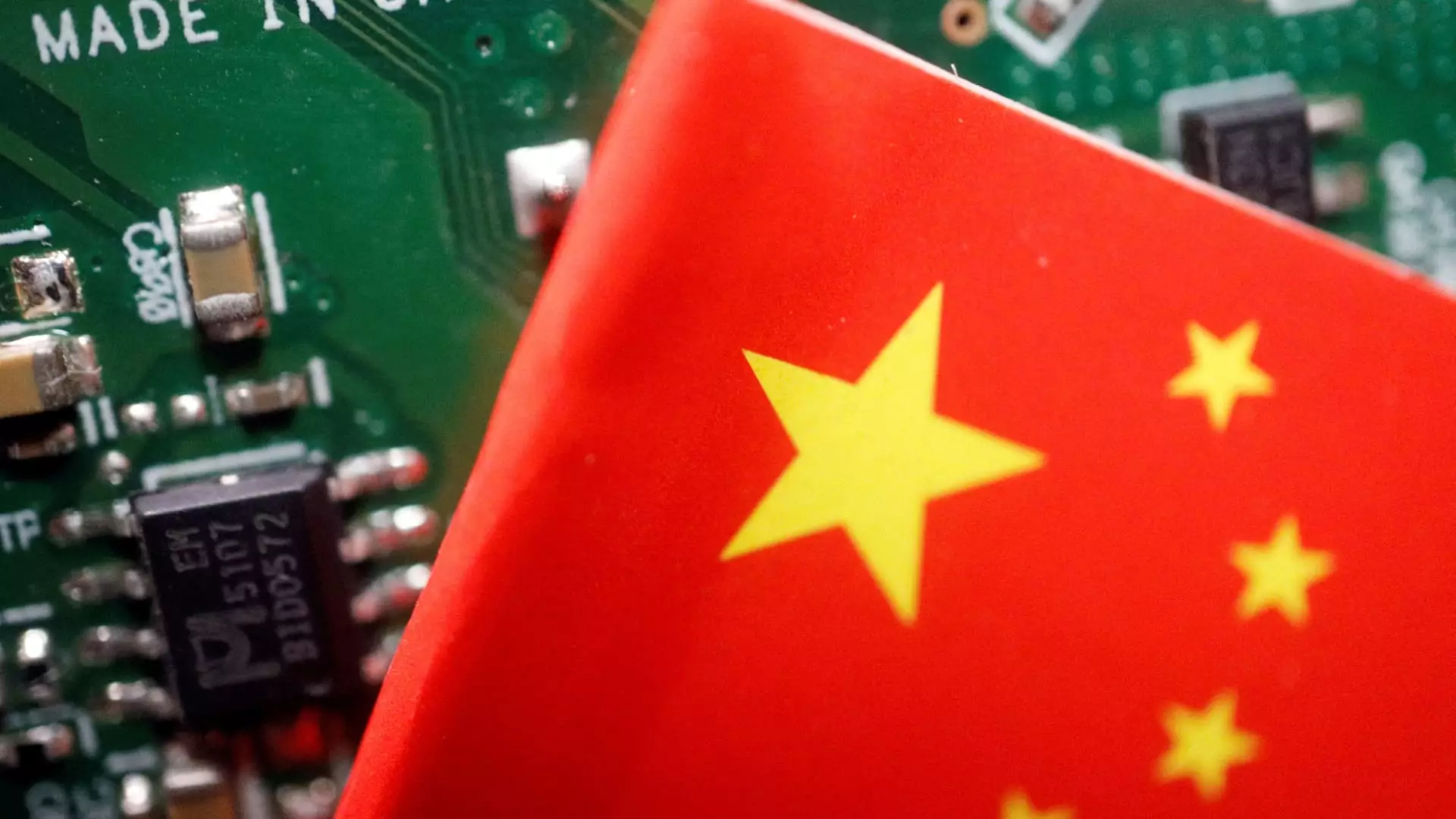The semiconductor industry has emerged as a critical frontier in global technology and geopolitics. Recent actions by the United States, which include stringent export controls aimed at China, have injected a fresh wave of uncertainty into this volatile sector. Despite these challenges, major Asian chip stocks have shown remarkable resilience, heralding a potentially optimistic outlook for stakeholders in these markets. Taiwan Semiconductor Manufacturing Company (TSMC), recognized as the world’s leading contract chip supplier, serves as a prime example of this upward trajectory. A 2.4% increase in TSMC’s shares on Tuesday indicates not only a bullish sentiment but also the strength of the company’s portfolio in an increasingly complex landscape influenced by political dynamics.
Japanese chip-related companies demonstrated an impressive performance, reflecting their robust market positioning. Notable gainers included Tokyo Electron with a 4.7% increase, and Lasertec, which shot up by 6.7%. Additional gains were recorded by Advantest and Renesas Electronics, rising by 3.9% and 2.2%, respectively. The resilience of these companies underlines a crucial aspect of the semiconductor market — diversification. The varied capabilities of Japanese firms in different segments of the semiconductor supply chain provide them with a buffer against country-specific risks and regulatory measures. Japanese technology giant SoftBank also felt the positive impact, reflecting a 3.6% rise in shares, indicating investor confidence in their investment in British chip designer Arm.
The Biden administration’s latest move to curb semiconductor exports aims to constrict China’s access to high-bandwidth memory chips, which could impede the technological advancements essential for military purposes. The controls specifically target 140 companies, including major Chinese entities like Naura Technology Group and ACM Research. While these restrictions are designed to stymie Chinese technological growth, the broader implications could reverberate throughout the global supply chain. Interestingly, South Korean giants Samsung Electronics and SK Hynix saw their shares rise by 0.9% and 1.8%, respectively, suggesting that investor sentiment considers potential shifts in global demand more significant than the immediate impact of export restrictions. Derrick Irwin, a portfolio manager at Allspring Global Investments, posits that while there may be some repercussions for South Korean firms, their strategic focus on diversifying markets could mitigate overall losses.
The U.S. Department of Commerce’s announcement highlighted an intriguing duality within the chip market. On one hand, it emphasizes the necessity for national security and the protection of sensitive technologies. On the other, it raises questions about the effectiveness of these measures, given previous instances where high-tech components have surfaced in unauthorized contexts, such as the TSMC chip found in a Huawei product. Regulatory changes, including new guidance for compliance and enhanced control mechanisms, are steps toward ensuring these restrictions are more adeptly applied. However, the continual evolution of the semiconductor landscape necessitates ongoing evaluation and adaptability in regulatory practices.
Looking ahead, the semiconductor industry’s resilience is likely to hinge on several factors: adaptability to new market dynamics, technological innovation, and diversification of supply chains. Companies outside of China are learning to navigate this newfound volatility not just by weathering the storm, but by positioning themselves strategically to capture market opportunities as they arise. The trend suggests a potential recalibration of global semiconductor manufacturing, where companies may increasingly pivot towards regions with more favorable regulatory environments or emerging markets.
As the geopolitical landscape continues to evolve, the semiconductor industry will undoubtedly remain a critical arena for competition and collaboration. Investors will do well to keep a keen eye on not only how these companies respond to ongoing restrictions but also how they leverage opportunities in a market defined by rapid change and technological advancement. Ultimately, the Asian chip stocks’ current resilience can spark a new chapter in this crucial sector, underscoring the importance of strategic foresight in navigating an increasingly complex global economy.



Leave a Reply